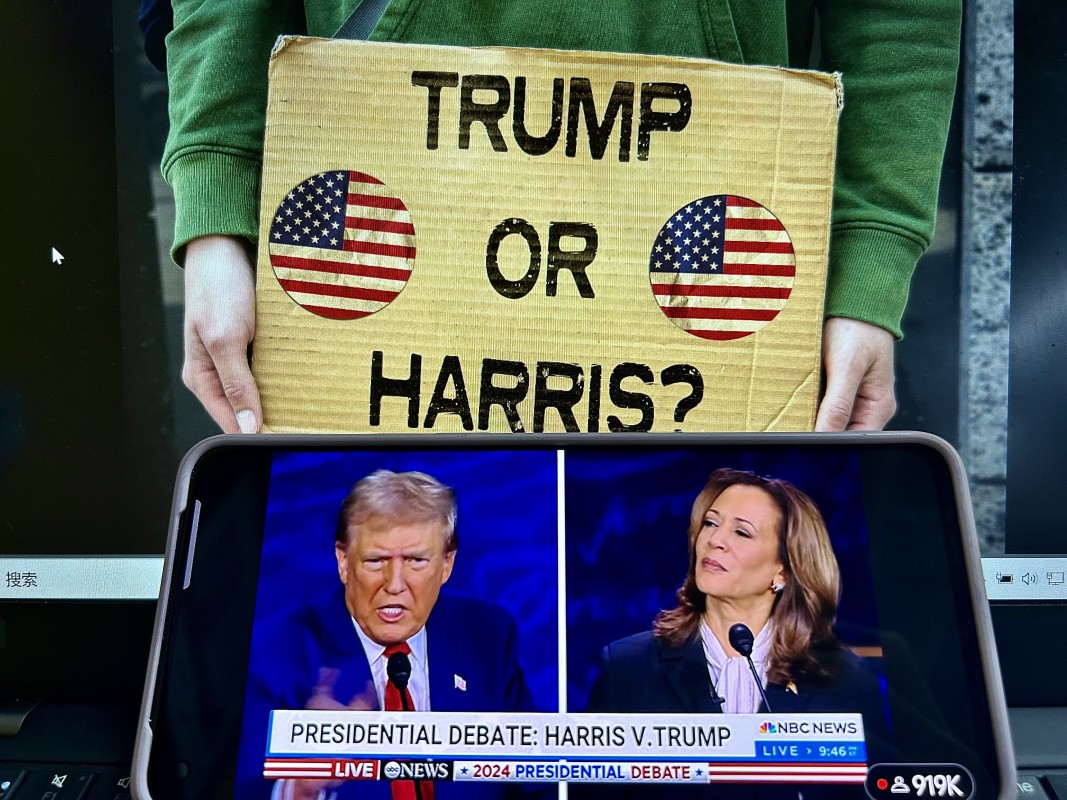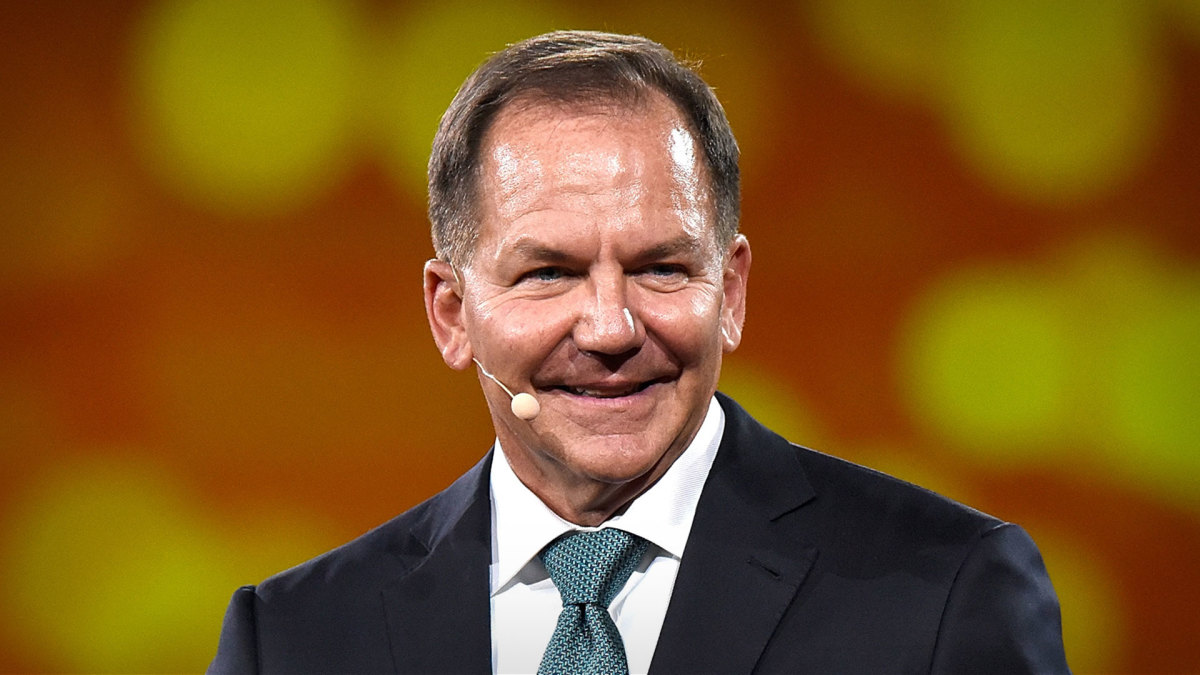
James Carville, the former political strategist who guided President Bill Clinton to his first election victory, summed it up best when he declared his intention to be reincarnated in the form of the bond market.
"You can intimidate everybody," he joked during an interview in the early 1990s when "it's the economy, stupid" defined elections of that era.
It seems that not much has changed since then, apart from the fact that when Carville started advising the Democrats in 1990, U.S. debt was pegged at around 40% of GDP.
Today, as the nation's collective IOU approaches an eye-watering $36 trillion, that ratio sits at around 115%, and it's expected to rise ever higher as both political parties pursue various forms of tax cuts, spending increases, and protectionist international trade policies.
💰💸 Don’t miss the move: SIGN UP for TheStreet’s FREE Daily newsletter 💰💸
It's already moving at a breakneck speed even without the new promises;. U.S. debt has risen by $600 billion over the past two months alone, an amount that is more than twice the estimated worth that Elon Musk, the world's richest man, needed a lifetime to accumulate.
The bond market, meanwhile, isn't as intimidating as it once was, largely because foreign investors continue to take down massive chunks of the billions in Treasury bonds the U.S. sells every month to plug its gaping fiscal deficit.
That said, benchmark 10-year yields, the closest proxy to a 'risk-free' interest rate in global finance, have been soaring lately, despite aggressive Federal Reserve rate cuts, adding further costs to U.S. borrowing and spooking investors from Tokyo to Toronto.

Kevin Mazur/Getty Images for Robin Hood
The moves, accompanied by a spike in Treasury market volatility, now at the highest levels of the year, aren't quite the 'intimidating' sort that Carville was talking about.
But they are certainly attracting attention into the final weeks of a presidential election campaign replete with tax cut pledges that will throw even more trillions onto America's debt pile.
Paul Tudor Jones takes aim at surging US debt
The [Congressional Budget Office] says that we'll go from 98% to 122% to 124% [debt-to-GDP], and that's very conservative, over the next ten years," billionaire investor Paul Tudor-Jones told CNBC Tuesday.
"If you extrapolate that 30 years, you get to 200% debt-to-GDP," he added. "So that's obviously something that can't go on forever and the question is, after this election, will there be some point of recognition, particularly with all the tax cuts that are being promised by both sides and the spending plans."
The bond markets moves are also underscoring a hard, but uncomfortable truth for whomever secures the White House early next month: the economy faces a trio of risks of exploding deficits, rising inflation and potential recession that can likely only be mitigated by doing something one candidate hates, and the other seems ambivalent about.
Related: Bond markets are heaving as Fed interest rate bets swing
Former President Donald Trump has described tariffs as "the most beautiful word in the dictionary" and has promised to slap them on goods from virtually every one of America's biggest trade partners.
He claims, incorrectly and quite absurdly, that they're a "tax on foreign countries" that will raise revenue for the Treasury while protecting American manufacturing.
They are not, of course, and decades of economic study have indisputably determined that tariffs are inflation-inducing at best, recession-triggering at worst, and a policy idea that hasn't worked since the late 1800s.
Let them pay ...
But what Trump, and, it has to be said, Vice President Kamala Harris either fail to understand or willfully ignore, is that America's debt problems can't be solved, or even improved, via the largess of foreign nations; they can at least be supported with cheaper borrowing costs.
Here's how.
China, the world's second-largest economy and its biggest exporter, has little or no need to hold the U.S. dollars is receives from selling goods into the United States, totaling around $280 billion last year.
The same is true for Japan, the European Union, and Great Britain, America's biggest trading partners outside of the Trump-arranged United States-Mexico-Canada Agreement, USMCA, put in place four years ago.
Related: Wait ... doesn't that guy owe me money?
Rather than have the dollar receipts from U.S. trade collecting dust in central bank coffers, China, Japan and the rest of the world often recycle those greenbacks into the bond market, earnings risk-free interest rates from the world's biggest and safest economy.
China, in fact, owns $775 billion in U.S. Treasury securities, second only to Japan's $1.13 trillion and just ahead of the United Kingdom's $744 billion.
That demand, which is evident in the "indirect buyers' data from Treasury auctions, acts as a circuit breaker to rising U.S. Treasury borrowing costs. It also kicks the can down the road on the kind of tax increases a government normally needs to make when its debt pile outweighs its growth prospects.
Now, those countries could also borrow bonds from one another or purchase commodities, such as gold or bitcoin, but each of those options is fraught with complications.
Government bonds from Europe are embedded with existential currency-area risk, those from Japan are linked to the world's oldest demographic with a terminally ill currency. Those from Britain are tied to unending political uncertainty and those from China are simply too -closely controlled by the country's communist government.
Gold might work, but there's a finite amount, and it's not nearly as liquid as Treasuries. Bitcoin is simply too new and too opaque to be trusted.
Some deficits matter
So, like it or not, trade deficits work in America's long-term interests. They keep taxes low and borrowing costs under control. They also help with inflation by suppressing goods prices and boosting the global economy to a rate that allows U.S. companies to sell their own things (or, increasingly, their own technologies) to foreign buyers.
Take that away, and you're asking for trouble:
- Retaliatory tariffs that seal off access to foreign markets.
- Higher-priced domestic goods that stoke inflation.
- Higher Treasury bond yields as a result of fewer foreign investor purchases and,
- Ultimately, higher taxes to fill the hole that those purchasers left behind.
Paul Tudor-Jones, while not addressing the tariff debate, nonetheless has his own recipe for America's cooked debt books, including higher tax rates and savage government spending cuts, and entitlement spending reform.
"But all roads lead to inflation," he said.
"The playbook to get out of this is your inflate your way out and you have a small tax on the consumer, and run interest rates below inflation and nominal growth above inflation," Tudor-Jones argued, adding that every percentage point in rate cuts inflates away around $90 billion from the deficit.
"If we're trying to stabilize debt-to-GDP, we want to run the most dovish monetary policy we can," he added.
More Economic Analysis:
- Goldman Sachs analyst overhauls S&P 500 targets for 2024, 2025
- PCE Inflation report resets bets on another big Fed rate cut
- Why stocks are soaring and the rally has room to run
He's right in theory but wrong in practice. Such a policy would immeasurably weaken the dollar, the world's reserve currency, and remove the third leg of the global stool that has propped up financial markets for much of the past fifty years.
Foreign investors might not have many alternatives for safe-haven assets, but they're certainly not going to provide the U.S. with free and ongoing fiscal support (through the purchase of Treasuries) if the government simply allows the greenback to wither on the vine of stagflation.
The debt problem is real, and Tudor-Jones correctly notes that interest payments alone next year will be larger than every single line item, apart from Social Security, in the already-bloated federal budget.
But the truth of the matter remains that, as long as America keeps trading, and swallows a bit of pride on the "tariff debate," there is simply no feasible alternative to the U.S. Treasury market anywhere on the horizon.
And once there is, the country will have a lot more problems than a tax-and-spending debate.
Related: Veteran fund manager sees world of pain coming for stocks







